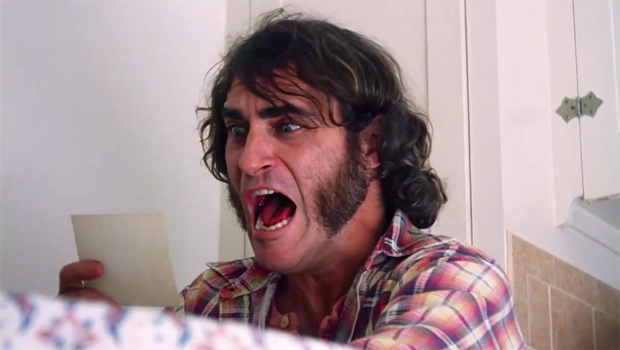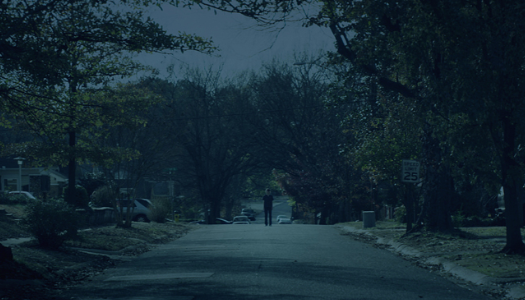 Cosmopolis
Cosmopolis
Directed by David Cronenberg
Written by David Cronenberg
Canada / France, 2012
A new David Cronenberg movie is a cause for excitement for many a film fanatic. The filmmaker’s oeuvre has earned him the respect and admiration from self described connoisseurs, officially recognized experts and over the past 10 years or so, the mainstream. At the start of his career, his more genre centric fair provided striking hints at what was to come in modern society (Videodrome being the most brilliant example), while his most recent film, A Dangerous Method, took a look at the evolution of human studies in the past. Cosmopolis, which played at this year’s Cannes film festival, has its narrative set firmly in the present, yet its themes may be deemed as…timeless?
Eric Packer (Robert Pattinson) is a billionaire living in Manhattan. For all intents and purposes, he personifies everything social activists decry about what is referred to as the ‘1%.’ Swimming in wealth, what he so desires he receives, no questions asked. The nature of his profession remains somewhat nebulous, although from what the audience can gather through interactions between him and some of his closest partners, he is a stock market broker of some sort. So far as his facial expression is concerned, he lacks passion, even though he speaks of wanting to have sex with his wife of three weeks, Elise (Sarah Gadon), and seems concerned about the security of his office and limousine, which he discusses with his top security expert, Shiner (Jay Baruchel). On this day, of all days, when the president of the United States is in town and the funeral for a immensely important hip hop icon is happening, Eric wants what any filthy rich, self aggrandized, good looking man requires in order to preserve his image: a hair cut. Road blocks, demonstrations and suspicions of an assassination attempt be damned, Eric orders that his driver and body guards take him across town to the barber shop he most trusts.
‘The sexuality (but not always sensuality) quota is through the stratosphere and the characters are indeed very peculiar…’
Every time Cronenberg answers the prayers of his fans with a new movie, it seems that the first reflex is to attempt to categorize it. Is this new film more like the old Cronenberg, in which very strange, very graphic bodily harm was done to its characters, or is this more in tune with his recent outputs, which, while still quite good, played things a little more on the safe side, at least visually? In a nutshell, and with the help of a little bit of retrofitting, Cosmopolis is cut from the same cloth as the director’s efforts of the early and mid 1990s. The sexuality (but not always sensuality) quota is through the stratosphere and the characters are indeed very peculiar, although there are no hands morphing into organic pistols or telepathic attacks to be found. Consider it Crash, but with a slightly more comprehensible, linear narrative. Granted, Cosmopolis was published in 2003 and therefore could not possibly have been made into a film in the mid 90s, but readers assuredly understand the intent of the statement.
And what of these ‘peculiar’ characters anyhow? This is where the picture, in part, earns its stripes, or possibly loses its audience. Cosmopolis‘ plot transpires over the course of a single day, from early morning to late at night. During that period, Eric crosses paths with a great host of individuals, from his aforementioned wife (three different occasions, no less) and security tech wizard, his chief finance adviser (Emily Hampshire), a secret lover (Juliette Binoche), a internationally renowned prankster (Mathieu Amalric), an odd young man who toys around with an electronic tablet (Philip Nozuka), an adviser in all things theoretical (Samantha Morton), and then some. In nearly all of these encounters, the dialogue is very much on the dry side, although Cronenberg makes sure to occasionally accentuate the ridiculous pretentiousness by inserting a little bit of biting comedy. The fact of the matter is that the film is an adaptation from a novel by Don DeLillo. The insights into the personality and thought process of a character which prose can afford are difficult to translate to screen, unless the majority of a film is driven by internal monologue, but that probably would not fly, either with studios or with audiences, at least not amongst the majority. Sometimes even dialogue which works brilliantly in a book will not flow as fluently when spoken by actors. This may be where Cosmopolis fails to shine as brightly as one would like it to. Oftentimes it does not feel as though the characters (in essence, the protagonist and whomever he happens to with talking with) are engaged in actual conversation, but rather spewing ideas, notions, theories, wishes, so on and so forth. Said theories or wishes are not even necessarily answered by the second character, who goes on to either change the subject or simply continue hammering whatever point they were trying to get across originally. It is dry, not terribly inspiring nor always memorable. Having not read the novel makes such a judgement call quite a delicate one, but it feels as though Cronenberg wanted either to reproduce as accurately as possible the manner in which the characters flowed in the source material or establish, for whatever the reason, that these characters and the speech patterns are literary and not exactly part of the real world as we recognize it.
‘Interestingly enough… one actor who, in a pleasant surprise, comes out looking rather good is the oft maligned Robert Pattinson.’
Hence, a disconnect occurs between the film and its audience. A word of caution: it is not that what Eric and the multiple side characters say is totally uninteresting. In fact, there are some wonderful lines of dialogue (and, consequently, pertinent ideas) , but that is, too frequently, all they are: wonderful lines, not organic parts of conversations. Interestingly enough, this is not always to the detriment of the performances, and one actor who, in a pleasant surprise, comes out looking rather good is the oft maligned Robert Pattinson. This Pattinson is most definitely not ogling over pale teenage girls. His Eric is a cold man looking for the simplest pleasures in life and is terribly determined to get them despite whatever hurdles, of which there are many, stand in his way over the course of the day. Sex, food, his personal health (which leads to one of the film’s most unpredictably funny scenes) and a bloody good haircut are of the order. He plays iciness with confidence, as does he play confident itself. None of the supporting players share even remotely the same amount of screen time given that Pattinson is literally in every single scene, yet the standout among them is Paul Giamati, whose late appearance in the film raises the stakes to a higher degree than anything that transpired before given the nature of his character and what he demands of the protagonist. Praise should also be given to George Touliatos who, as Eric’s barber, earnestly injects some emotion into his character, a rarity in this film.
Despite what flaws hamper some of the dialogue, there are some compelling ideas floating about in the picture. With all the hoopla in Manhattan, the protestors have come out in droves and try to start a new movement, one that involves using the rat as an iconic symbol. It is a little bit on the nose, but well played by Cronenberg. The protestors have a legitimate point to make, but anybody who plays attention to demonstrations, be it as an active participant or as an observer via television, knows that sometimes the demonstrators themselves can look a bit ridiculous (in this spring of 2012, Montrealers are well aware of what a massive demonstration can entail). There are always two sides to a coin, however important a cause may be. Something else that echoes throughout the film is Eric’s self destructive nature. He is immensely wealthy and supported by hoards or advisers, yet he goes against the grain and decides to plays his cards with terrific risk, which partially proves to be his undoing. His jaded nature puts him completely out of touch what the realities of the world he lives in, to the point, in fact, that it may be argued he is no longer even living in the same world as everybody else. His interpretation of what can and cannot be owned is warped, as is his appreciation of human life. The incurable disdain and lack of recognition of the rich for whatever concerns the simple folk is an unfortunate reality societies have been living with, or enduring, for centuries already. Eric’s mere drive to quench his simple thirsts regardless of the stark realities all around him is compelling to watch unfold in of itself, albeit for some rather perverse reasons. When, in the film’s final act, he finally opts to confront a real problem which directly concerns him, one wonders if he can actually deal with the situation. Will it be his ultimate destruction? True enough, none of this is new material, but in Cronenberg’s hands it works adequately enough.
Aided some some unorthodox, impressive visuals (attained through comparably simple methods. Always a nice touch), Cosmopolis has little nuggets of gold waiting to be discovered and enjoyed by the viewers. It features an impressively eclectic cast with a few truly stellar performances, and explores a few compelling ideas that people wrestle with till this very day. That being said, the dialogue is where the film suffers most. It is too clinical and too determined to make many of the characters come across as philosophers as opposed to real people. That may be all fine and dandy in a book, but on film the results disappoint. Not a bad film by any definition, but proceed with caution.
-Edgar Chaput







